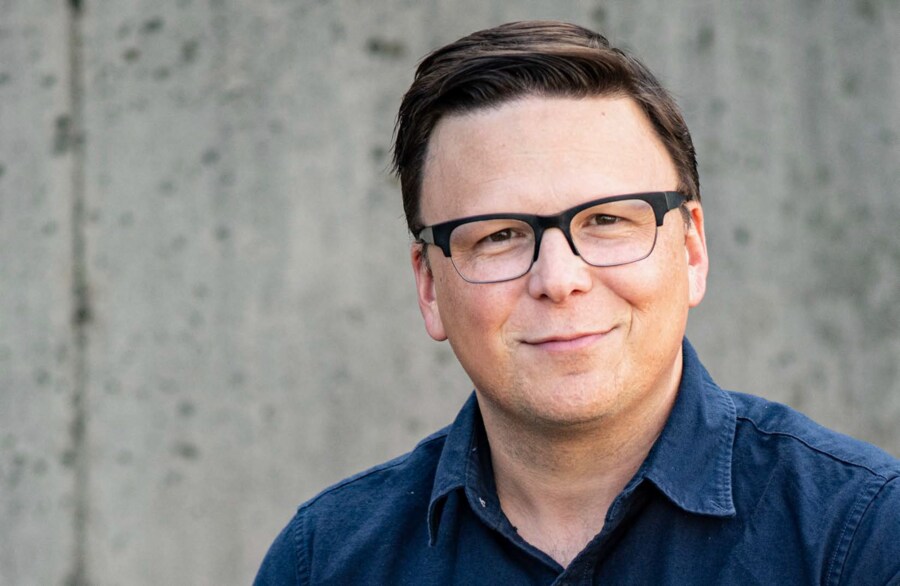SEATTLE: Seattle Rep, the city’s 60-year-old flagship resident theatre company, has appointed Dámaso Rodríguez to be its new artistic director, starting on July 31. Rodríguez succeeds Braden Abraham, who left the Rep last winter after 10 years in the post to lead Chicago’s Writers Theatre.
“What I knew I wanted was a next step in my career,” said Rodríguez, who spent nine years at the helm of Portland’s Artists Repertory Theatre before leaving the company in 2021 to become a freelance director and consultant. Seattle Rep is a larger showplace with a bigger budget (around $16 million, as compared to Artists Rep’s $2.4 million) and two venues to fill (the 678-seat Bagley Wright mainstage and the 282-seat Leo K. Theatre). The Rep’s national reputation includes a regional theatre Tony, historic relationships with such playwrights as Wendy Wasserstein, Robert Schenkkan, and August Wilson, and many works it nurtured heading to Broadway.
“It’s not just the size of the Rep that attracted me to the theatre—it’s also the scope,” Rodríguez said. “I want to do wide-armed, varying work—classic and contemporary work, intimate and large-scale productions in conversation with each other. I think that’s possible there. It’s what interests me, and it’s what is important now.”
Jarvis Bowers, co-chair of the Seattle Rep board of directors’ search committee, said in a statement, “In selecting Dámaso, the Rep not only benefits from his impressive record of creative productions but also his commitment to engaging the full Seattle community in ‘theatre at the heart of public life.’”
A Cuban American born in Miami, Rodríguez has spent his professional career largely on the West Coast. At Artists Rep he oversaw the company’s transition into a LORT theatre, as well as a capital campaign to erect a new building that will replace its earlier Pearl District home. (With construction currently underway, the company will perform its 2023-24 shows at various Portland locations, including the Center for Native Arts and Cultures.)
Recent among his more than 60 Portland productions were world premieres of The Talented Ones by Yussef El Guindi, Larissa FastHorse’s The Thanksgiving Play, Wolf Play by Hansol Jung, and American Fast by Kareem Fahmy. Rodríguez also pioneered an “Arts Hub” program, which welcomed a diverse group of Portland artists and arts organizations to use the Artists Rep facilities.
He’s also no stranger to Seattle, where in 2010 he staged a rare revival of the Clifford Odets drama Paradise Lost at Intiman Theatre, and in 2021 a Seattle Rep workshop of The Undesirables, a new musical by Brian Quijada and Hansol Jung. Rodríguez ’s lengthy résumé also includes lengthy stints as associate artistic director of Pasadena Playhouse and co-artistic director of Theatre Furious in Los Angeles. He has guest-directed at many other regional theatres.
Rodríguez said that with the Seattle Rep’s 2023-24 season already set by Abraham and continuing Rep managing director Jeffrey Herrmann, he plans to spend some time making an “exploratory” entrée into the city’s theatre scene. “I want to be listening to current longtime audience members of the Rep, actors in the community, directors and designers, the Rep staff. I want to arrive without too many assumptions, and ask some pretty open-ended questions about what draws audiences to the theatre.”
Though well aware of the steep fiscal and audience development challenges most nonprofit theatres in Seattle and across the country are currently facing, Rodríguez believes the arts subscription model that has been in decline can be reinvigorated rather than abandoned. And he suggested that theatres economizing by concentrating on small-cast, low-overhead plays can be self-defeating.
“Plays have gotten smaller and smaller,” he reflected, “and there’s a connection, I think, between making smaller plays and the diminishing of the audience. Power and scale and spectacle can really move people. We’ve surrendered the power of many bodies and big stories on the stage.”
In his view, he continued, “The way forward is getting back to why people want to see plays, what that visceral experience is. When I interviewed for the Seattle job, I wasn’t shy about some of the things I want to do, in terms of scale of work and finding a way to produce both new plays, and revitalize classics like Shakespeare and Euripides. I also want to excavate great plays from the ’60s, ’70s, ’80s that we aren’t seeing much.”
Seattle Rep has had its share of fiscal crunches, before and since the pandemic, and is hardly immune from national trends of lower ticket sales, generational and governmental shifts in attendance and arts funding, decreasing press coverage, and the difficulties of attracting patrons who could more easily hang out and stream entertainment at home. But as he enters a Seattle battered by COVID, and with one of the highest costs of living in the U.S. after a huge influx of nomadic young tech professionals with little experience of theatre, Rodríguez seems energized by the opportunity to help revitalize a scene that just lost one beloved company (Book-It Repertory) and is fearful of other losses.
The coming year could be a make-or-break year for many of the city’s arts groups, but Rodríguez sounds genuinely upbeat.
“Seattle Rep’s next season is not a contracted season,” he notes. “It’s still a very robust lineup in both spaces. You focus on what resources you have. And here they are significant.”
Misha Berson (she/her) is the former theatre critic of The Seattle Times and the author of several books on theatre, including Something’s Coming, Something Good: West Side Story and the American Imagination. She is currently a freelance writer and teacher, and a frequent contributor to American Theatre.


